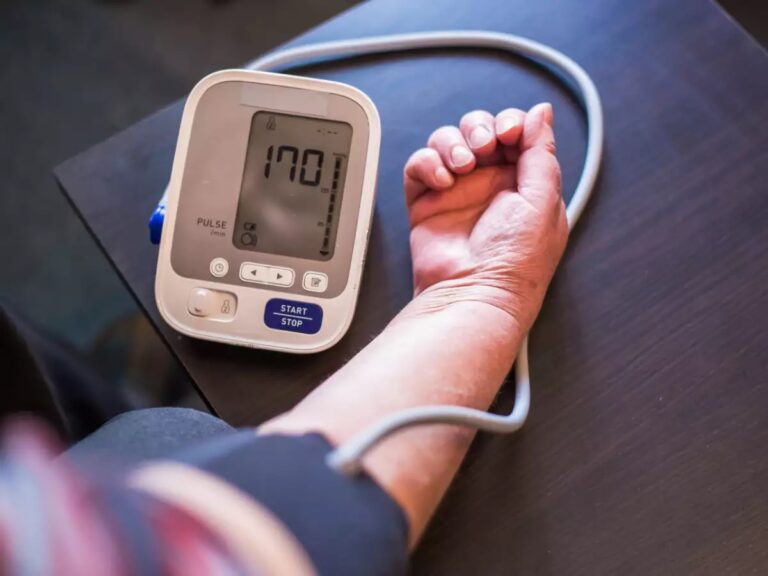Our lives are becoming more hectic, which means many diseases and conditions are worsening. Lifestyle diseases are caused by decisions made in the way we live, for example, high blood pressure. Like many heart-related illnesses the condition of hypertension, as is generally referred to, if untreated can lead to numerous chronic diseases. In contrast to other health issues, hypertension may sometimes have no symptoms or signs, but it could cause harm to the health of an individual should it not be managed appropriately. This article will show you ways to lower blood pressure and improve your way of life. This article discusses the nature of hypertension and its causes, symptoms, and risks. It also includes the important aspects to consider when managing hypertension.
The force of blood pressing against the wall of the arteries is known as blood pressure. The force of blood pushing against the walls of the arteries every time the heart beats. If the pressure that is constantly applied to the artery walls is high, it’s referred to as high blood pressure control. To pump blood more efficiently, the heart must be working harder. If the heart beats the blood pressure rises to highest, it is known as the systolic pressure. The blood pressure decreases between beats while the heart continues to beat. It is called diastolic. Mercury millimeter (mm/Hg) is the unit of blood pressure. Hypertension is defined as blood pressure greater than 140/80 mm Hg. Also, if the blood pressure is more than or equal to 140 millimeters Hg systolic pressure or higher than or equal to 90 mm diastolic pressure, it is referred to as high blood pressure.
Generally, in 90 to 95% of the cases of high blood pressure there is no clear reason. This type of hypertension is generally referred to as essential hypertension or primary hypertension, and tends to progress slowly over a long period of time. The remaining 5-10% of the cases are caused by an underlying reason, and this type of hypertension is known as secondary hypertension. As mentioned earlier, most people with high blood pressure don’t exhibit any obvious symptoms. There are a few signs that individuals may develop. Certain people might feel dizzy or have dull headaches in the initial phases of high blood pressure. These symptoms are rare until high blood pressure reaches an advanced stage. There are various factors that increase the risk of high blood pressure. These include smoking, obesity, stress levels and consumption of alcohol. Certain conditions associated with disease can cause high blood pressure. Diseases like kidney diseases or hormonal conditions like hypothyroidism and Cushing’s syndrome may also trigger high blood pressure. High blood pressure can cause a variety of complications that are related to different body organs.
Lifestyle and dietary adjustments are vital to maintain high blood pressure. A balanced, healthy and nutritious eating plan is vital along with taking prescription medication. A balanced and healthy diet with whole grains, fruits, vegetables, and low-fat dairy is vital. Eating foods rich in potassium content can help prevent and reduce high blood pressure. Avoiding coffee, colas, high sodium diet, fast or junk food, ketchup, pickles olives, all sorts of sauces, canned meals as well as salted nuts commercial as well as saturated fats ensures a balanced diet. Instead of eating a lot of salt, herbs and spices can be used. They can enhance the flavor and aroma of the food. Substituting saturated or “bad” fats with ghee or unsalted butter can help. The restriction of alcohol consumption is vital as well.
If you’re obese, losing weight is crucial. Regular exercise at least 30 minutes every day is essential to maintain high blood pressure. Smoking damages the walls of blood vessels and accelerates the process of hardening the arteries. People suffering from high blood pressure must quit smoking as soon as they can. It is important to manage stress to lower high blood pressure. Deep breathing, stress-coping methods and muscle relaxation are just a few of the methods available. Health and wellness changes could help lower blood pressure. It is crucial to speak with an expert if you require medication.
Simple diet and lifestyle changes can help one manage hypertension better. To stop hypertension from becoming worse, it is an ideal idea to consult a doctor to get medications. The presence of high blood pressure can’t be identified due to lack of symptoms, so regular checkup is essential. A healthy diet, which includes fruits, vegetables, and dairy that is low in fat, can make an enormous difference. Regular exercising is also a good option. People who suffer from high blood pressure should restrict their consumption of alcohol and quit smoking. If one is able to do this, hypertension will be controlled.


Comments are closed.